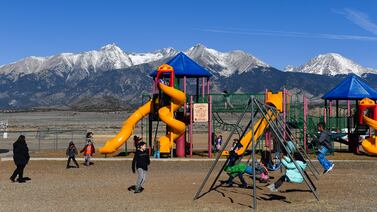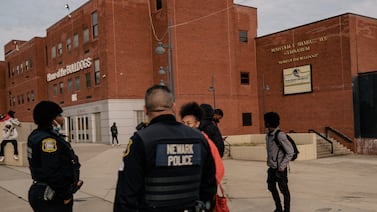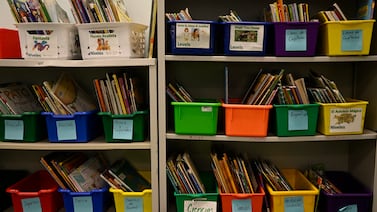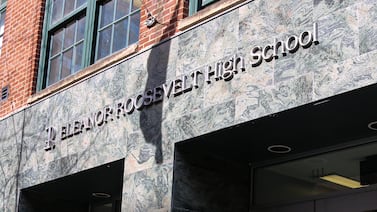Four months ago when projecting another revenue surplus for Tennessee, Gov. Bill Lee’s administration proposed more than $600 million in new investments to public schools, including a teacher pay hike, bolstering early literacy, and tackling the mental health needs of K-12 students.
Then a global pandemic hit.
This week — as lawmakers begin returning to the Capitol wearing masks to guard against the coronavirus — they’ll stare at cratering revenues and the need to make deep cuts to Tennessee’s spending plan.
“Any bill with any kind of a fiscal note is not going anywhere,” promised House Education Committee Chairman Mark White. “The money just isn’t there.”
Already gone is a $250 million mental health trust fund to support students. Lee proposed that novel approach in early February, then cut it six weeks later when the state’s economy suddenly ground to a halt.
Lawmakers will begin sorting out what to eliminate next when they resume committee work on Tuesday before heading back into session on June 1. Leaders say they expect to adjourn by the third week of June.
Here are five issues to watch for:
Lee’s early literacy initiative could still happen, but on a smaller scale.
After the governor asked for $68 million for a comprehensive literacy program to attack Tennessee’s stubbornly low reading scores, the House took the lead in vetting his proposal. But just as lawmakers were on the verge of passing the bill out of committees, they stripped spending for it from the emergency budget.
White is among leaders who believe the proposal’s most important parts might be salvaged this year. “I would still love to get the ball rolling now with new phonics-based training for our teachers,” he said late last week.
Central to the plan is about $48 million to retrain teachers on literacy instruction and change how teacher training programs prepare new educators to teach reading. White suggests that the state education department’s $30 million share of federal coronavirus relief funding might help cover the cost, since that one-time money can go toward teacher training.
A pay increase for teachers is uncertain.
Lawmakers likely will revisit new spending that barely made the emergency budget, like the $58.5 million set aside for teacher compensation in 2020-21.
Lee had proposed a 4% teacher pay hike, then halved it when shifting to a bare-bones spending plan as schools were being closed. But the virus has radically shifted the state’s budget outlook. For April alone, general fund revenues fell more than $651 million short of projections.
Already cut from the emergency plan: the governor’s proposal to increase annual base pay from $36,000 to $38,000 for teachers with a bachelor’s degree and no teaching experience.
Voucher funding is in trouble.
Many public school teachers and advocates were upset at Lee’s insistence on retaining $41 million for the first year of his controversial program to pay for private schooling for some students, while clawing back proposed increases for teacher pay.
Now the future of Tennessee’s education saving accounts is in doubt after a Nashville judge overturned the 2019 voucher law in early May.
Lee wants to keep funding for vouchers intact, even though two courts have blocked the program from proceeding while the state appeals the ruling. But he also acknowledged recently that “everything’s on the table” for budget cuts.
Of the $41 million set aside for the program, $3 million is to cover the cost of administration. The remainder is to offset anticipated funding losses to districts in Memphis and Nashville as students accept education savings accounts. Democrats want that “school choice” line item struck from the budget and reallocated as support for traditional public schools.
Expect discussions on summer school and technology.
This spring’s sudden school shutdown — and the associated loss of learning for Tennessee students — is elevating conversations about how the state can best support students who need help the most.
Rep. Scott Cepicky, a Republican from Columbia, had already been pushing summer school programs targeting struggling students in kindergarten through third grade. His bill could be expanded to K-8 to deal with expected gaps in learning starting in the summer of 2021.
Sen. Raumesh Akbari of Memphis says now is the time to address the digital divide for students needing computers and internet service.
“Our focus should be on how we can help students learn in our new environment, including the likelihood that much of school will need to happen online,” said Akbari, the lone Democrat on the Senate Education Committee. “COVID-19 has exposed tremendous gaps between the haves and have nots, and we’ve got to address inequities in technology and internet access for both urban and rural districts.”
On everyone’s mind: Will state government maintain education funding?
Tennessee has made significant investments in public education under its last three governors but still ranks 45th in the nation in per-pupil spending. The state also prides itself on being fiscally conservative. This year’s plummeting revenues will test the legislature’s resolve when it comes to prioritizing dollars for its most vulnerable children. Ultimately, lawmakers will decide whether to maintain funding through the state’s formula known as the Basic Education Program, or BEP.
With that unknown, district leaders and anxious school boards have been cutting costs and passing conservative budgets across the state, even as they seek to quickly ravamp how to do school in a COVID-19 environment.
“We cannot go backwards,” said JC Bowman, executive director of the Professional Educators of Tennessee. He hopes the legislature will dip into its “rainy day” surplus, if necessary. “Sometimes it rains, and this is the time when we need to dip into that well,” Bowman said.
A spokesman for the governor says the depth of the state’s “health and economic crisis” has the administration weighing all of the options.
“We’re going to have to make some tough decisions,” said Lee’s press secretary, Gillum Ferguson, on Friday. “The administration will be working closely with the legislature to make sure a balanced budget is passed.”







